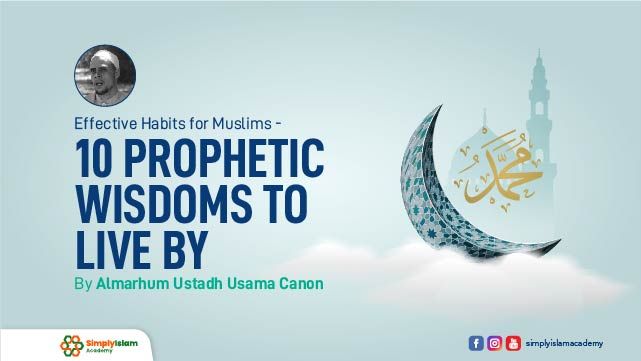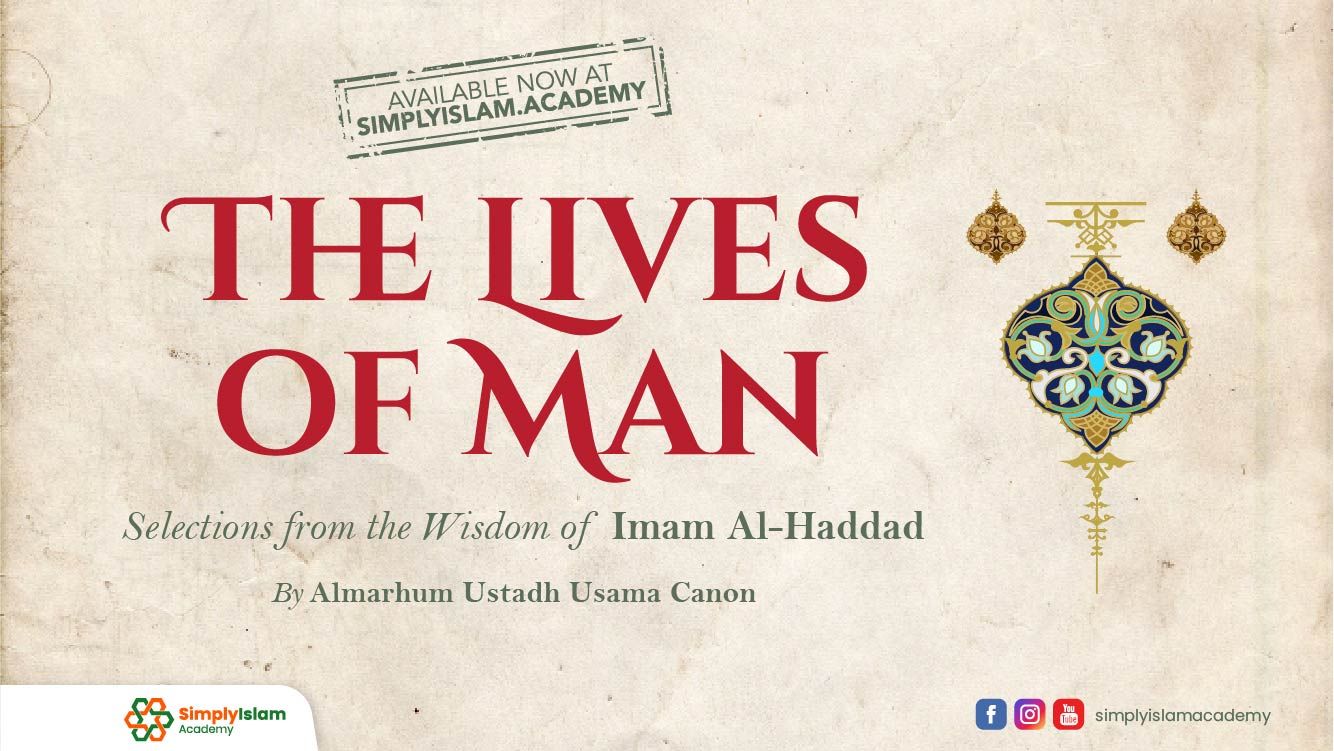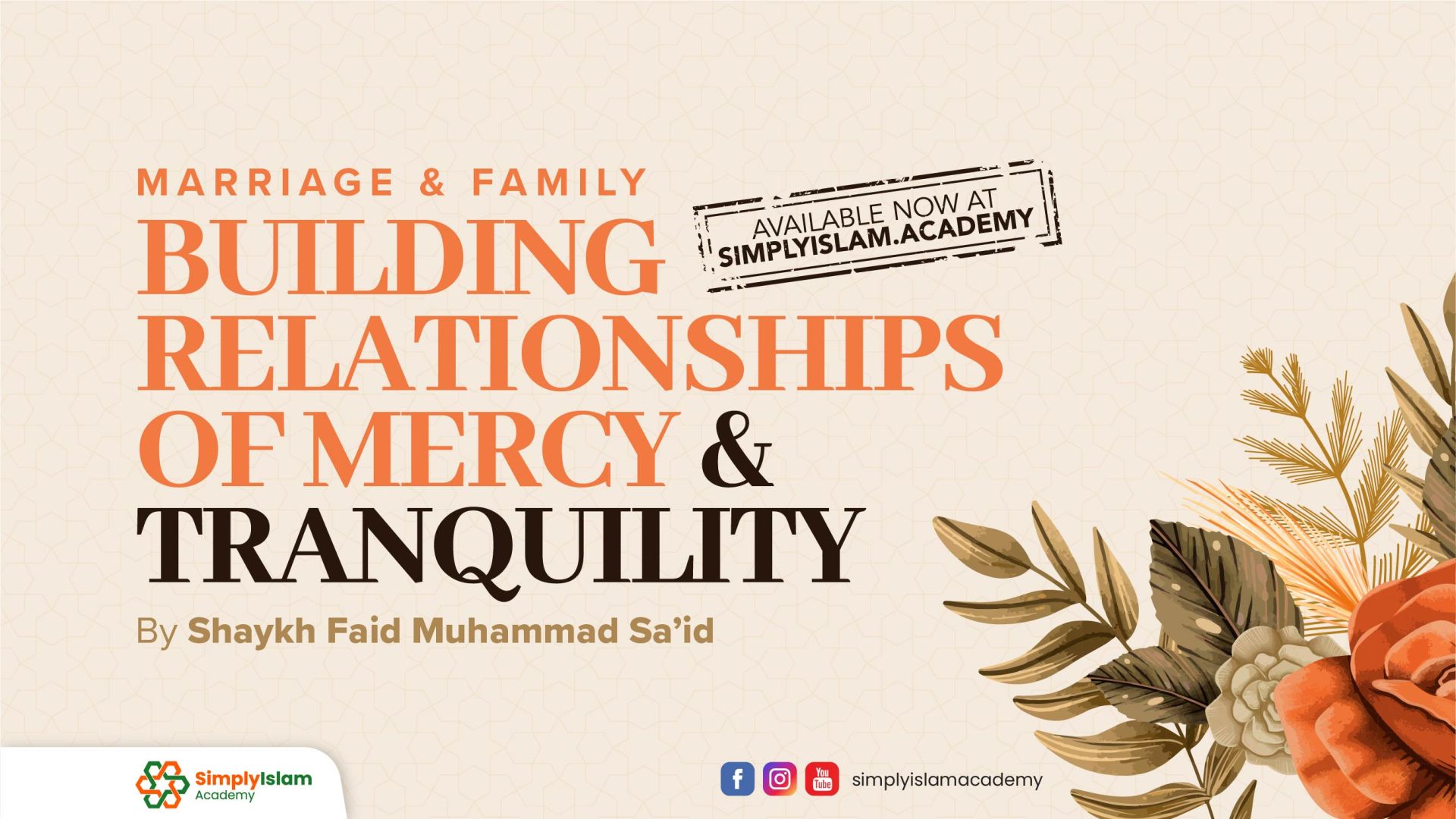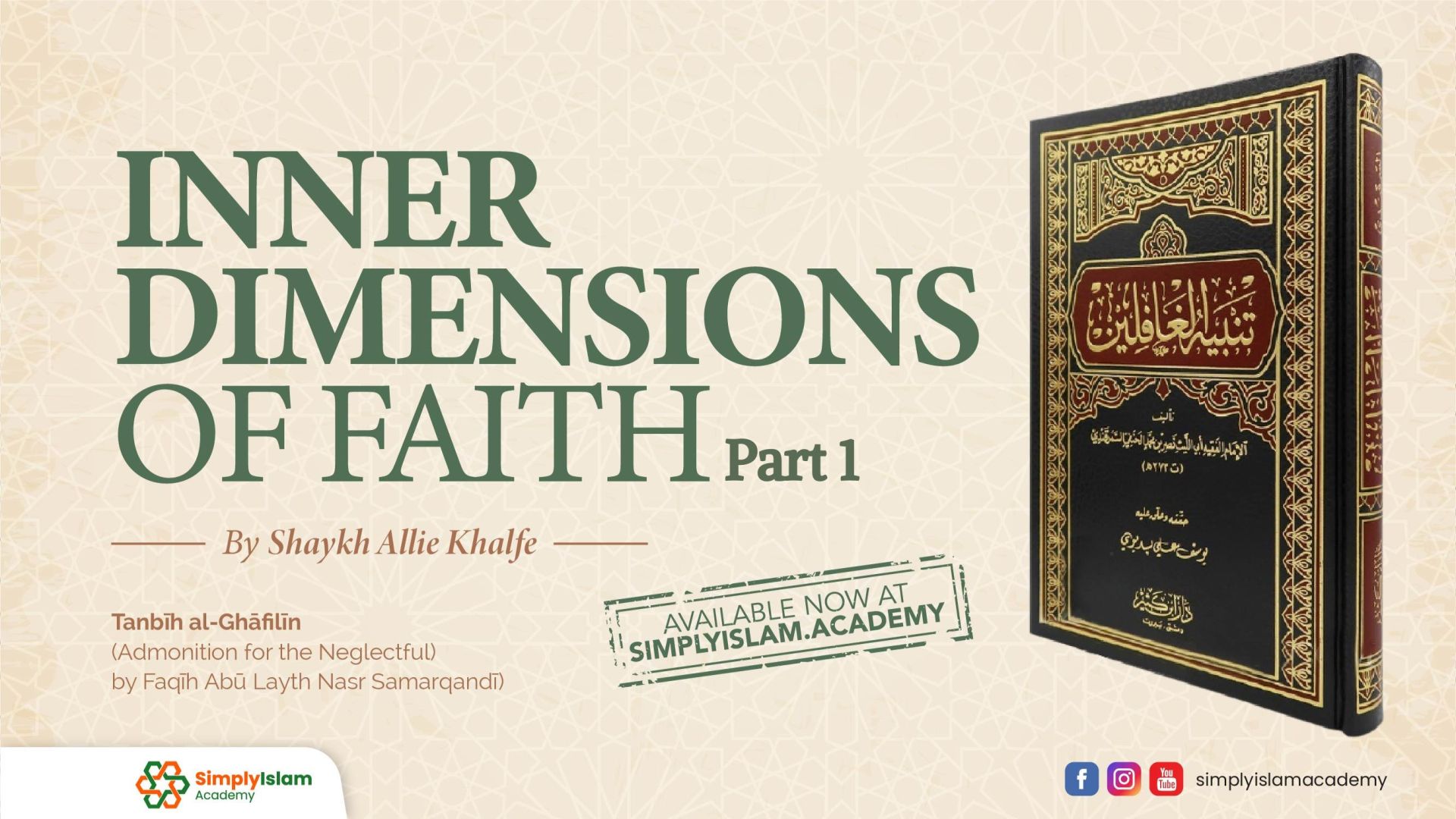The 18 Sources Of Barakah According To The Qur’an And Sunnah
-
Lily Syahirah Ramlan
-
26 July 2021
Have you ever felt anxious, and what you have is never enough? Sometimes we find it perplexing why we work so hard, but our income is insufficient to cover our expenses. We ponder over the unexplained reason for the insufficiency. If you are discontent and worried over your sustenance, this article will help extinguish those thoughts and replace them with more optimism by understanding what barakah is and how to bring it into our lives! It is never too late to learn and discover the essence of barakah and how to attain it through these sources.
The Origin of the word ‘Barakah’
Linguistically, the verb barakah means ‘to kneel down’. The Arabs would refer to a camel which knelt or sat down as ‘Barakatil Ibilu’, translated as “the camel has knelt down”.
What is Barakah in Islam (Meaning)
Generally, barakah is a Divine Gift from Allah the Almighty. He is the Bestower of all things, and He is the Source of all barakah. Barakah can potentially occur at any time in your life. For example, you can gain barakah from the money you own, the time you spend, the work you do, the food you eat and others. Gaining barakah means making the most out of the resources you have, and you will never feel insufficient no matter how little you possess.
A well-known da`ee explains the barakah meaning as follows:
والبركة: هي ثبوت الخير الإلهي في الشيء؛ فإنها إذا حلت في قليل كثرته، وإذا حلت في كثير نفع، ومن أعظم ثمار البركة في الأمور كلها إستعمالها في طاعة الله عز وجل.
“Barakah is the attachment of Divine Goodness to a thing, so if it occurs in something little, it increases it. And if it occurs in something much it benefits. And the greatest fruit of barakah in all things is to use it in the obedience of Allah, Exalted and Majestic.”
3 Different Types of Barakah:
Now that we understand the meaning of barakah, Divine Blessings from Allah Almighty that bring goodness and benefit beyond what is apparent, let’s explore the three different ways barakah can manifest in your life.
Recognizing these signs can help you feel more grateful and spiritually grounded, even when things may not look extraordinary on the outside.
Growth and Increase
One of the most recognizable signs of barakah is growth and increase. While many associate barakah with financial prosperity, it goes far beyond that.
It could be an increase in knowledge, where you’ve learned, matured, and evolved over time. Perhaps you’ve grown in patience, wisdom, or the ability to manage your responsibilities better.
Whether it's in your career, family life, or spiritual journey, barakah shows itself in how your capacity expands in meaningful ways.
Stationary
Barakah can also manifest in what may seem like stillness. You might not see rapid growth or even consistent outward progression, but there’s a quiet contentment and sufficiency in your life.
You’re not in lack, you’re not in chaos, and that calm is a sign of Divine Ease. This type of barakah is subtle but profound.
It allows you to be satisfied with less, to live simply, and to feel spiritually centered even when things around you aren’t changing. It’s the kind of blessing that keeps your heart at peace and your life free from unnecessary turbulence.
Continuity
You might feel like your life isn’t moving forward in big leaps, your income hasn’t increased much, or your job title has remained the same.
But if you’re still able to provide for your needs, support your loved ones, and maintain a stable life over time, that’s barakah in continuity.
Sometimes, the biggest blessings are in the steadiness Allah Almighty grants us: in good health, consistent provision, or the ability to keep going without major setbacks.
Ways to Increase Barakah
Finding barakah in the things we do is highly encouraged in Islam, and we should always work for it to taste the sweetness of the fruit and appreciate the things we have in life. Interested to know the sources of barakah? Here is a list of how you can attain it:
1. Having Good Intentions
Everything you do starts from within. Before you do something, ask yourself: What is your intention in doing so and so? As a Muslim, it should be common practice to rectify your intentions for the sake of Allah the Almighty and His Messenger ﷺ.
According to the first hadith of Imam an-Nawawi’s 40 Hadith, the Prophet ﷺ mentioned:
According to the first hadith of Imam an-Nawawi’s 40 Hadith, the Prophet ﷺ mentioned:
“Actions are but by intention and every man shall have but that which he intended. Thus he whose migration was for Allah and His messenger, his migration was for Allah and His messenger, and he whose migration was to achieve some worldly benefit or to take some woman in marriage, his migration was for that for which he migrated.” [Bukhari and Muslim]
2. Putting Your Trust in Allah (Tawakkul)
Sometimes, we have high expectations in the things we do, hoping that the result will turn out positive and according to our plan- or perhaps, things do not go well, and we feel there is no hope left for us.
Remember, one of the sources of barakah is by putting our trust in Allah and believing in the Divine Decree that he has set for us. The most important thing is that we have done our best and put in all the extra effort, so we should leave the rest to Allah the Almighty alone.
3. Saying Bismillah
In one of our lectures entitled ‘Tafsir Surah al Fatiha’, Shaykh Allie Khalfe elaborated on the essence of the letter ب in Bismillah. He went to great lengths to explain how this significant letter is related to the concept of barakah.
Whenever you say ‘Bismillah’ before anything you do, you are invoking the Name of Allah on that particular activity; not only will that activity be blessed, but you will also be protected from the deception of Shaytaan. It is important to remind yourself to say ‘Bismillah’ before anything you do!
4. Eating with People
Have you ever had your guests come over to your house, and you feel anxious if the food is not enough? The power of barakah is that no matter how little or insufficient you think the food is catered to your guest, there is always more than enough. The Prophet ﷺ also encouraged us to eat in a congregation and to not eat separately:
Salim bin ‘Abdullah bin ‘Umar said: “I heard my father say: ‘I heard ‘Umar bin Khattab say: “The Messenger of Allah (ﷺ) said: ‘Eat together and do not eat separately, for the blessing is in being together.’” [Sunan Ibn Majah]
5. Be Honest in Trade
Some entrepreneurs make the most out of lying and deceiving their customers, leading to scams as a way to profit lucratively. However, this does not only decrease the barakah in the profit they make but it is forbidden in Islam! Always be honest when dealing with business, and if you think that there are many loopholes to your product, then find a way to make it better the halal way, InshaAllah.
Narrated Hakim bin Hizam: The Prophet (ﷺ) said, “The buyer and the seller have the option of cancelling or confirming the bargain unless they separate, and if they spoke the truth and made clear the defects of the goods, then they would be blessed in their bargain, and if they told lies and hid some facts, their bargain would be deprived of Allah’s blessings.” [Sahih al-Bukhari]
6. Making Du’a to Seek for Barakah
Du’a is the essence of worship, and we should spare some time every day to make sincere du’a to Allah the Almighty, especially in seeking barakah in our life. Making a heartfelt dua for barakah is a powerful way to invite blessings into every aspect of our lives. Nothing is more powerful than du’a, so ask Allah the Glorious to give us barakah in these three things:
- time, so you can accomplish more goals in less time.
- wealth, so you can lead a moderate lifestyle whilst helping those who are in need.
- health, so you can help others and not depend upon anyone for your physical needs.
Here are also some of the du’as we can make in order to obtain barakah:
اللّهُـمَّ اهْـدِنـي فـيمَنْ هَـدَيْـت، وَعـافِنـي فـيمَنْ عافَـيْت، وَتَوَلَّـني فـيمَنْ تَوَلَّـيْت، وَبارِكْ لـي فـيما أَعْطَـيْت، وَقِـني شَرَّ ما قَضَـيْت، فَإِنَّـكَ تَقْـضي وَلا يُقْـضى عَلَـيْك ، إِنَّـهُ لا يَـذِلُّ مَنْ والَـيْت، [ وَلا يَعِـزُّ مَن عـادَيْت ]، تَبـارَكْـتَ رَبَّـنا وَتَعـالَـيْت
O Allah, guide me with those whom You have guided, and strengthen me with those whom You have given strength. Take me to Your care with those whom You have taken to Your care. Bless me for what You have given me. Protect me from the evil You have ordained. Surely, You command and are not commanded, and none whom You have committed to Your care shall be humiliated [and none whom You have taken as an enemy shall taste glory]. You are Blessed, Our Lord, and Exalted. [Abu Dawud, Ibn Majah, An-Nasa’i, At-Tirmidhi, Ahmad, Ad-Darimi, Al-Hakim, and Al-Bayhaqi]
مَنْ أَطْعَمَهُ اللَّهُ الطَّعَامَ فَلْيَقُلْ: “اللَّهُمَّ بَارِكْ لَنَا فِيهِ وَأَطْعِمْنَا خَيْراً مِنْهُ”،
وَمَنْ سَقَاهُ اللَّهُ لَبَناً فَلْيَقُلْ “اللَّهُمَّ بَارِكْ لَنَا فِيهِ وَزِدْنَا مِنْهُ”
Whomever Allah has given food, should say: Allahumma barik lana fihi, wa at`imna khayran minh.
Whomever Allah has given milk to drink, should say: Allahumma barik lana fihi, wa zidna minh.
Whomever Allah has given food, should say
: O Allah, bless us in it and provide us with better than it.
Whomever Allah has given milk to drink, should say:
O Allah, bless us in it and give us more of it.[At-Tirmidhi]
7. Following the Sunnah of the Holy Prophet ﷺ
As Muslims, we should all base our lives according to the Sunnah of our beloved Prophet ﷺ and try to incorporate as many virtues as we can. By following his lifestyle and the acts of Sunnah, we obtain a great source of barakah in our lives.
Hence, get up and enhance your knowledge on the Prophet’s ﷺ Sirah and Hadith to learn more about his life. If you want to access a trusted site with credible hadiths, head over to sunnah.com.
8. Saying Alhamdulillah (Shukr)
All it takes is to be grateful for the things we have now, even though it can be difficult at times. Allah has mentioned in the Qur’an in regards to thankfulness:
‘If you are grateful, I will certainly give you more.’ [Qur’an 14:7]
This verse highlights how Allah increases barakah in every little thing we are thankful for, and Allah is All-Knowing. To help you get through the days with the feeling of gratitude, you can always jot down the things you are thankful for in a journal. Here are just some of the journal apps available to help you feel more positive:
- Daylio Journal
- Friday (Planner & Journal)
- The Five Minute Journal App
Learn from the Best Muslim Scholars
Sirah
Fiqh
Aqidah
Qur'an
Write your awesome label here.
Fundamentals of Islamic Worship (Part 1)
Write your awesome label here.
Key Concepts of Fiqh & Usul Al-Fiqh (Part 1)
Write your awesome label here.
Key Questions to Related to Fasting and Ramadan
Write your awesome label here.
The Absolute Essentials of Islam
Write your awesome label here.
The Islamic Creed
Write your awesome label here.
Tafsir Al-Fatiha
Write your awesome label here.
Tafsir Surah Yasin
Write your awesome label here.
Tafsir and Reflection on the Qur'an
Write your awesome label here.
The Sublime Qualities and Portrait of Muhammad ﷺ (Part 1)
Write your awesome label here.
Seerah Retreat (Part 1)
Write your awesome label here.
Sacred Journeys: Reflections upon the Abyssinian and Madinan Migrations (Hijrah)
9. Giving Charity (Sadaqah)
Whenever you feel down in the dumps, give charity. Whenever you feel lost, give charity. Whenever you feel your life lacks barakah, give charity! Charity is one of the ways to invite the blessing of Allah into your life.
Narrated Abu Huraira: Allah’s Messenger (ﷺ) said, “Allah said, ‘O son of Adam! Spend, and I shall spend on you.” [Sahih al-Bukhari]
Let your heart out. Speak your mind and pour it all as if He’s right there by your side.
“And indeed We have created man, and We know whatever thoughts his inner self develops, and We are closer to him than (his) jugular vein.” [Quran 50:16].
According to the hadith mentioned above, giving charity increases barakah in the money you possess. So, encourage yourself to give a portion of your property to those who are destitute, InshaAllah.
10. Maintain your ties of kinship (silah rahmi)
To cut ties with brothers and sisters in Islam is not encouraged, let alone among your relatives. We should all strengthen the bond with each other to obtain barakah in our family members. The Holy Prophet ﷺ also advises us to maintain our ties of kinship and make amends if we have severed those ties:
‘Abdullah bin Amr narrated that:
the Prophet ﷺ said: “Merely maintaining the ties of kinship is not adequate. But connecting the ties of kinship is when his ties to the womb are severed and he connects it.” [Jami’ at-Tirmidhi]
These are just some of the sources of barakah all Muslims can have access to. We should all strive towards obtaining this essential component of blessing to live a happier and more contentful life, InshaAllah.
11. Allah’s Consciousness (Taqwa)
Taqwa, or God-consciousness, is a fundamental source of barakah.
When a person remains mindful of Allah Almighty, follows His commands with sincerity and hope for His Mercy, and avoids what He has prohibited out of fear to ignite His Wrath, they invite Allah’s Divine Blessings into their life. Allah promises in the Quran:
"And whoever fears Allah – He will make for him a way out and will provide for him from where he does not expect." (Surah At-Talaq 65:2-3)
12. Accepting Destiny with Satisfaction (Qadr)
Believing in and accepting Allah’s Divine Decree with contentment brings barakah.
A heart at peace with its destiny is free from stress and resentment, allowing room for gratitude and spiritual abundance. Accepting qadr (divine destiny) strengthens faith and trust in Allah’s Divine Wisdom.
13. Reading the Quran
The Quran is a source of Barakah, but most importantly, it is a source of guidance. Regular recitation, reflection, and application of its teachings increase barakah in one’s life.
“This is the Book about which there is no doubt, a guidance for those conscious of Allah.” [Qur’an 2:2]
14. Getting Married
Marriage, when done for the sake of Allah Almighty, brings immense barakah.
It is also a Sunnah of our beloved Prophet Muhammad ﷺ. The Prophet ﷺ encouraged marriage, stating that it completes half of one’s faith.
It was narrated that 'Abdullah said:
"The Messenger of Allah said: 'Whoever among you can afford to get married, let him do so, and whoever cannot afford it should fast, for it will be a restraint (Wija) for him."' [Sunan An-Nasa’i]
However, it is also equally important, if not, more important to sustain the marriage with love and mercy.
A household which lacks love, compassion and mercy, a household which invites arguments can restrain barakah, so should one opt for marriage, they should both take good care of each other and carry their responsibilities with Amanah.
15. Praying Salah
Salah is the direct communication between a servant and Allah Almighty.
How does Salah bring barakah? It brings barakah by purifying the heart and soul, removing sins, and instilling discipline and tranquility.
It is important to note that barakah comes not only in the form of financial means or rizq that we commonly know, but also in peace, serenity and the ease in our affairs.
Jabir bin 'Abdullah, may Allah be pleased with them, narrated that :Allah's Messenger said: "The key to Paradise is Salat, and the key to Salat is Wudu'." [Jami’ At-Tirmidhi]
16. Istighfar (Seeking Forgiveness from Allah)
Constantly asking for forgiveness or reciting Istighfar is also one of the best ways to increase barakah in your life. It removes sins and opens doors to sustenance and ease in your burdens and affairs. The Qur’an mentions:
"And [saying], 'Seek forgiveness of your Lord and repent to Him, [and] He will let you enjoy a good provision.'" [Qur’an 11:3]
17. Waking Up Early
The Prophet ﷺ prayed for barakah in the early hours of the day, saying:
It was narrated from Ibn Umar that the Messenger of Allah (ﷺ) said:"O Allah, bless my nation early in the morning.' " [Sunan Ibn Majah]
Logically speaking, starting the day early allows one to be productive, complete obligations, and seek sustenance with Allah’s Divine Blessings, Mercy and Compassion.
18. Earning Through Halal Means
Seeking a livelihood through halal means or sources ensures barakah in wealth, health, and peace of mind.
Engaging in riba’ (interest), dishonesty, or unethical earnings removes blessings from wealth. Not only that, but if one is not managing their time or tasks responsibly within working hours, it is also considered unethical.
It was narrated from 'Aishah that the Messenger of Allah (ﷺ) said:"The best of your provision is what you earn, and your children are part of what you earn. " [Sunan Ibn Majah]
Conclusion
We’ve covered the meaning of barakah, which is a divine blessing from Allah Almighty, that transforms little into abundance and brings contentment into life.
We also learn that barakah is not only limited to financial means, but everything else like peace,, ease in our burdens, affairs, our strengthened bonds with people around us, as well as our closeness to Allah Almighty.
By adopting Taqwa, relying on Allah Almighty, engaging in acts of worship, and maintaining halal sustenance, we can attract barakah into our lives.
FAQs
What is the meaning of barakah in Islam?
Barakah refers to divine blessings, increase, and goodness in something. It can manifest in wealth, time, health, relationships, and spirituality. Barakah is not just about abundance but also about having lasting benefit and contentment.
What is the importance of barakah?
Barakah brings fulfillment, ease, and divine favor into one’s life. It allows a person to achieve more with less and experience peace in their heart. Without barakah, even great wealth or success can feel empty and unfulfilling.
What does the Quran say about barakah?
The Quran frequently mentions barakah as a reward for faith and righteousness. For example, Allah Almighty says:
"And if the people of the towns had believed and feared Allah, We would have certainly opened up for them blessings from the heaven and the earth." (Surah Al-A’raf 7:96)
Which surah is for barakah?
Surah Al-Waqi’ah is known to bring barakah in sustenance. The Prophet ﷺ recommended reciting it to prevent poverty. Additionally, Surah Al-Baqarah is said to bring blessings and protect against evil.
What is lack of barakah?
Lack of barakah manifests as constant struggle despite effort, stress, dissatisfaction, and a feeling of emptiness or suffocation in an emotional sense. It can result from sinful actions, lack of gratitude, haram earnings, and neglecting obligations towards Allah Almighty. Seeking barakah requires turning back to Allah through repentance and righteous deeds.
Subscribe to Our Newsletter
Stay updated on our free courses, promotions, events and more!
Thank you!
Related Courses
About The Author:
Written By:
Lily Syahirah Ramlan
Lily Syahirah is a Content Writer of SimplyIslam Academy based in Selangor, Malaysia. She recently graduated with a Bachelor's Degree of Education (Teaching English as a Second Language) from International Islamic University Malaysia in 2020. She is actively invovled in public speaking, English language debates, poetry and theatre and loves to express her work through writing. Her love for language arts and imagination has led her to produce, direct and write experimental plays she's passionate about during her degree years. She was also actively invovled as a Master of Ceremony (Emcee) where she hosts minor and major events in IIUM.
About Us
SimplyIslam Academy, a subsidiary of SimplyIslam.sg, is an online Islamic education centre, delivering quality Islamic courses via online since early 2021.
The online Islamic school provides indispensable learning on the various sciences of Islam, covering Qur’an, Hadith, Sirah, Fiqh, Tasawwuf, and others.
The online Islamic school provides indispensable learning on the various sciences of Islam, covering Qur’an, Hadith, Sirah, Fiqh, Tasawwuf, and others.
Follow us
Useful Links:
Thank you!

Learn Anytime, Anywhere
Copyright © SimplyIslam Academy. All Rights Reserved.
Try Our Free Online Islamic Classes Today
Enter your email and we’ll send you notifications on our free classes.
Thank you for subscribing to our newsletter!
Try Our Free Online Islamic Classes Today
Enter your email and we’ll send you notifications on our free classes.
Thank you for subscribing to our newsletter!




